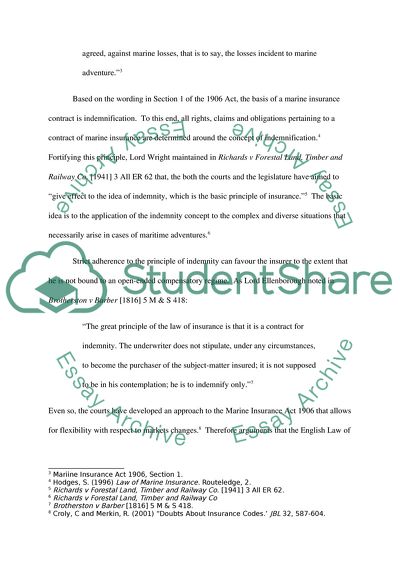Cite this document
(The English Law of Marine Insurance Coursework Example | Topics and Well Written Essays - 2000 words, n.d.)
The English Law of Marine Insurance Coursework Example | Topics and Well Written Essays - 2000 words. https://studentshare.org/law/1721376-the-english-law-of-marine-insurance-is-heavily-weighted-in-favour-of-the-insurer-at-the-expense-of-the-insured
The English Law of Marine Insurance Coursework Example | Topics and Well Written Essays - 2000 words. https://studentshare.org/law/1721376-the-english-law-of-marine-insurance-is-heavily-weighted-in-favour-of-the-insurer-at-the-expense-of-the-insured
(The English Law of Marine Insurance Coursework Example | Topics and Well Written Essays - 2000 Words)
The English Law of Marine Insurance Coursework Example | Topics and Well Written Essays - 2000 Words. https://studentshare.org/law/1721376-the-english-law-of-marine-insurance-is-heavily-weighted-in-favour-of-the-insurer-at-the-expense-of-the-insured.
The English Law of Marine Insurance Coursework Example | Topics and Well Written Essays - 2000 Words. https://studentshare.org/law/1721376-the-english-law-of-marine-insurance-is-heavily-weighted-in-favour-of-the-insurer-at-the-expense-of-the-insured.
“The English Law of Marine Insurance Coursework Example | Topics and Well Written Essays - 2000 Words”. https://studentshare.org/law/1721376-the-english-law-of-marine-insurance-is-heavily-weighted-in-favour-of-the-insurer-at-the-expense-of-the-insured.


